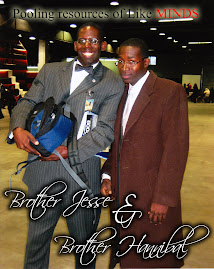Outcry in South America over US military base pact
Deal to increase access to Colombia bases angers neighbours and damages Obama's attempts to mend relations with region
- guardian.co.uk, Thursday 27 August 2009 11.02 BST
Venezuela's president, Hugo Chavez, claims US aggression is 'blowing winds of war'. Photograph: Howard Yanes/AP
South American leaders are due to square off tomorrow over a plan to increase US access to military bases in Colombia, a deal that has damaged Barack Obama's attempt to mend relations with the region.
A diplomatic firestorm has been ignited, with a summit in Argentina pitting Colombia – which has sought closer co-operation with Washington – against its neighbours who fear the US presence will threaten leftist governments.
Venezuela's president, Hugo Chávez, has led the denunciations, claiming US imperialist aggression was blowing "winds of war". He has vowed to buy extra Russian tanks to defend his socialist revolution and told his cabinet to prepare for ruptured relations with Bogotá.
Chávez's socialist allies in Bolivia and Ecuador echoed the alarm. The more centrist governments of Argentina, Brazil and Chile expressed unease, isolating the US and its Colombian ally.
Washington and Bogotá have scrambled to defend the pact, which is close to being finalised, as a mere administrative tweaking of their decade-long military co-operation to combat drug traffickers and leftist guerrillas. The proposed 10-year lease will give the US access to at least seven Colombian bases – three air force, two naval and two army – stretching from the Pacific to the Caribbean.
The US secretary of state, Hillary Clinton, said there was no intention to expand the number of permanent personnel beyond the maximum permitted by Congress: 800 military and 600 civilian contractors.
"Any US activity will have to be mutually agreed upon in advance. The United States does not have, and does not seek, bases inside Colombia. Second, there will be no significant permanent increase in the US military presence in Colombia."
America turned to Colombia after Ecuador refused to renew an agreement giving access to its Manta airbase. Officials said the pact with Colombia stemmed from a proposed $46m (£28m) upgrade of Palanquero base north of Bogota. Washington did not want to spend that kind of money without a formal deal.
But a region scarred by memories of CIA-backed dictatorships in the 70s and 80s has balked at the prospect of "gringo" boots and aircraft stationed on their continent, notwithstanding goodwill for the new occupant of the White House.
"Washington should not have been surprised by the controversy it generated," said Michael Shifter, of the Inter-American Dialogue thinktank. "Obama may be appealing and popular, but there is still a lot of historical baggage and real suspicions about US motives in the region.
"The costs could have been easily avoided with more skillful and sustained diplomatic work by senior US officials."
Privately, US officials concede Chávez has outmanoeuvred them with hype calculated to tap continental grievances. Although he has not mobilised troops and his talk of war is widely seen as bombast, some analysts say Colombia's neighbours have legitimate cause for concern.
Washington has not fully explained its mandate nor the scope and nature of its operations, wrote Adam Isacson, of the Centre for International Policy, which monitors US initiatives in Colombia. "The United States is creating a new capability in South America, and capabilities often get used."
Colombia's US-supported military has won plaudits at home for pushing back Farc guerrillas but has also provoked dismay over its human rights abuses and a cross-border raid into Ecuador last year.
Colombia's conservative president, Alvaro Uribe, spent last week touring the region trying to soothe neighbours in advance of tomorrow's Union of South American Nations (Unasur) summit.
Brazil and Chile, which have stable relations with Washington, were partly mollified – but Chávez's Andean bloc remained steadfast in its opposition.
Bolivia's president, Evo Morales, called for continent-wide referendum on the plan. "If the Colombian president wants his bases to be used, I say I want a referendum in South America so the people of Bolivia, Colombia, Peru, Venezuela, Brazil, Argentina all 12 countries can decide," he said.
The feuding will test Brazil's hopes of moulding Unasur, which was founded last year, into a vehicle for regional integration along the lines of the EU.
http://www.guardian.co.uk/world/2009/aug/27/anger-america-colombia-bases-deal
Information Researched By: Sister Anonymous








































